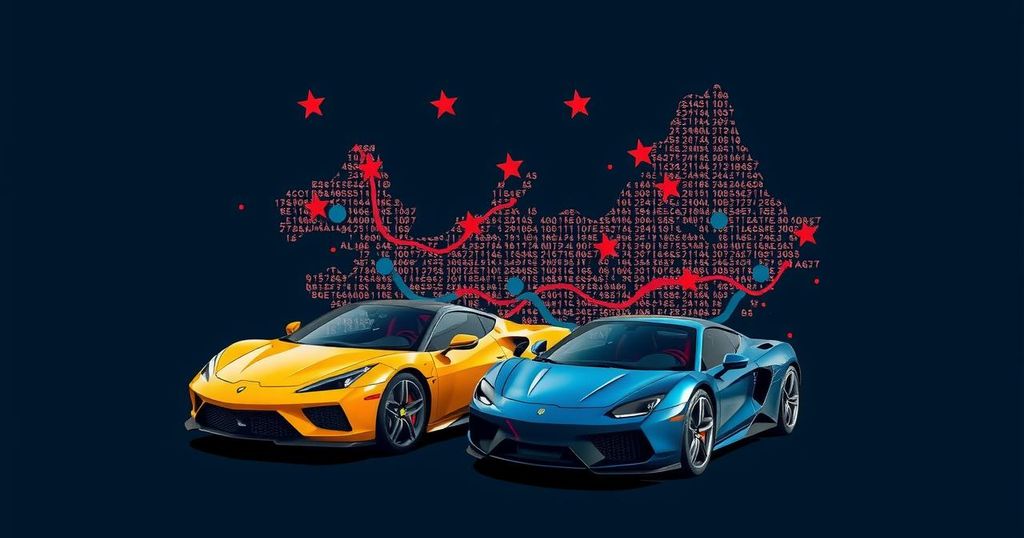The Impact of Chinese Electric Vehicles in Europe: A Coming Transformation
Alfredo Altavilla, an ex-Fiat-Chrysler executive, warns of a major disruption in the automotive market due to the rise of Chinese EVs, specifically BYD. He highlights the company’s unparalleled efficiency in vehicle production and its ambition to establish a solid European presence, differentiating itself from other Chinese brands. The competitive landscape is changing as traditional companies may be hesitating, facing pressures from swift market entrants like BYD and MG, leading to a potential upheaval in market share dynamics.
The growing presence of Chinese electric vehicles (EVs) in Europe is projected to cause a major shift in the automotive landscape, reminiscent of an “earthquake” according to Alfredo Altavilla, a former executive at Fiat-Chrysler and now an advisor for BYD. He emphasized the significance of this development, stating that the exact magnitude of this transition remains unclear. Altavilla, who has substantial experience in both Western and Eastern automotive industries, highlighted the impressive efficiency in product development at BYD, asserting that their vehicle creation process can achieve remarkable speeds, with some models developed in under 18 months, setting a high bar compared to the traditional 33-month cycle typical in the West. He attributes BYD’s rapid innovation to its ingrained high-tech philosophies and exposure to competitive sectors, such as consumer electronics. Furthermore, the perceived quality of their products matches established automotive brands, aided by accomplished designers like Wolfgang Egger. BYD seeks to establish itself as a genuine European manufacturer, diverging from other Chinese companies that may only aim to assemble cars locally while remaining rooted in China. This strategic choice not only aims to sidestep tariffs but also emphasizes local research and development. Altavilla indicated that recruiting talent has been exceedingly successful, with numerous applicants from established manufacturers, underscoring fears within European automakers regarding the competitive threats posed by Chinese firms. He pointed to how quickly brands like MG have gained market share, suggesting that European manufacturers, particularly German companies, may be lagging due to indecision and excessive strategizing without actionable steps. Overall, the entry of Chinese EVs could fundamentally alter the market dynamics in Europe, presenting substantial challenges to traditional car manufacturers who must adapt swiftly to maintain their relevance.
The entry of Chinese automotive brands, particularly in the electric vehicle sector, poses a significant challenge to established European manufacturers. With advancements in technology and production methods, companies like BYD are positioning themselves to capitalize on the growing demand for EVs in Europe, where environmental regulations and consumer preferences are rapidly shifting. The strategies employed by these companies differ markedly from traditional manufacturers, focusing on swift development and local engagement to navigate tariff barriers and market entry complexity. The increasing number of applicants for job openings at BYD further reflects the internal fears and pressures faced by European carmakers as competition intensifies.
The rise of Chinese car manufacturers, particularly BYD, signifies a transformative phase for the European automotive market, characterized by rapid innovation, effective recruitment strategies, and a focus on becoming local manufacturers. With traditional automakers potentially hindered by their own slow decision-making processes, the broad acceptance of Chinese EVs could lead to significant disruption and a change in market leadership. The implications of this shift are profound, requiring a profound reevaluation of strategies among existing European manufacturers to secure their future in the evolving automotive landscape.
Original Source: www.topgear.com




Post Comment